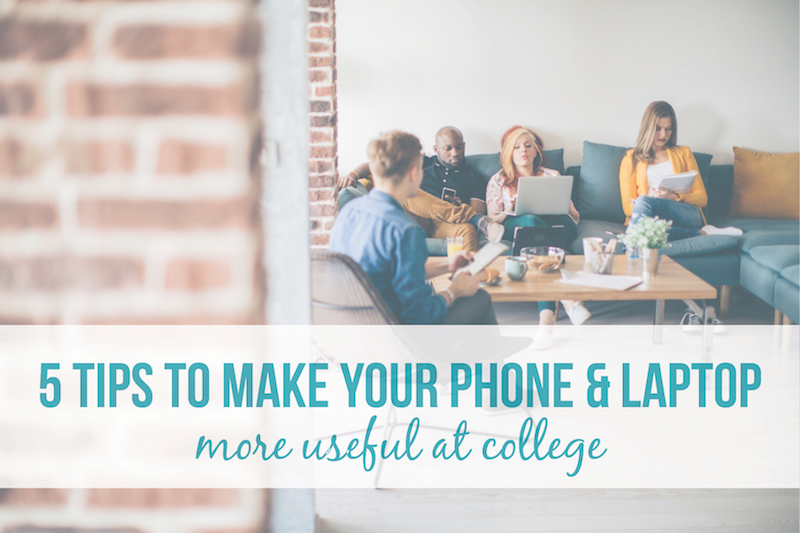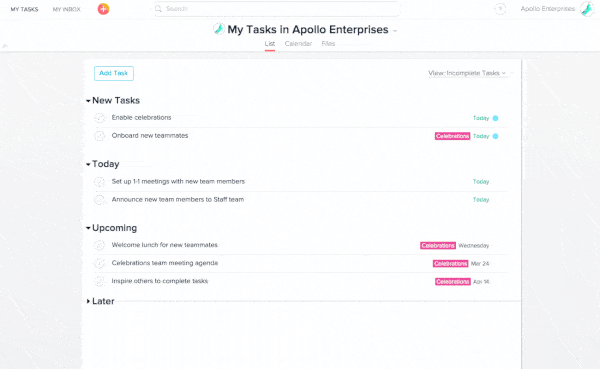The college campus has changed significantly over the past decade or so. Lecture halls and study spaces that were formerly filled with paper notebooks, textbooks, pens, and pencils are now occupied by laptops, tablets, and mobile phones.

While digital devices have brought quick access to a wealth of information, improved communication among students and faculty, and have made submitting assignments and exams far simpler, it’s no secret that they also bring a limitless set of distractions to academia. For example, students scrolling Facebook or browsing memes weren’t issues in a 1970s college classroom, but are certainly common distractions in classrooms of today.
So, how does a college student who wants to focus on achieving to the best of his or her academic ability eliminate distraction and maximize productivity when it comes to their connected devices?
I’ve come up with a list of ways you can make your phone and laptop (and tablet) more useful and less distracting while trying to get the most of your college tuition. Please note that I’m not affiliated with any of the links below (other than Skooli Online Tutoring), nor am I being paid to include them in the article. They’re just suggestions to help you have a better experience!
1. Take control of your phone! Manage your notifications.
When it comes to producing good academic work or studying efficiently for an upcoming exam, mobile phone notifications are like mosquitoes - they serve no good purpose and should be eliminated. Notifications have the ability to take an app that you are paying absolutely no attention to and bring it to the forefront of your attention. I recommend turning off your phone notifications for social media (including Snapchat!), texts, and other messaging platforms to begin with. The 10 or 20 minutes it will take you to set your notifications up in a way that’s best for you will be totally worth it when you’re twice as productive during your next study session.
2. Temporarily block sites that are bound to be a distraction.
If you’re the type of person who bounces back and forth between tabs and windows, quickly shuffling from Spotify, to your assignment, to the dastardly depths of your favourite social media black hole, then perhaps it’s time to install an app or browser extension to help you control your urges. Here are some suggested options:
Freedom - This app is available for iOS and Android users alike. Download it and install it on your phone to stop you from visiting distracting websites and using distracting apps.
StayFocusd - StayFocusd is an extension for your Chrome internet browser that prevents you from wasting time on distracting sites.
3. Download and install apps that will help you, not distract you.
Now that you’ve frozen the bad apps, it’s time to download and install some that will help you make the most of your time. Try some of these to start:
Medium - I recommend using Medium to follow topics and authors related your area(s) of study. You can find good quality writing citing academic material all over this site. And even if you don’t, it’s a great place to find thought leadership material that will help you become informed on the topics you need to know about. Download links: Medium for iOS, Medium for Andriod
Asana - Do you have lots of group work? How about projects with several subtasks to take care of? Asana is a great tool to organize tasks and manage teams. It will also reward you for completing tasks by sending a unicorn streaking across your screen. Asana for iOS, Asana for Android

4. Use the cloud.
I’ve suggested making the move to Google Drive on AdmitSee’s blog before (7 Pieces of Advice for First Year College Students), but I think this one is such a difference-maker that I should emphasize it again. In 2016, forgetting to save or encountering a hard drive problem should not be an excuse for losing an assignment. Moving to the cloud for saving your work (or even just to create a backup of your locally stored file) will ensure you don’t lose anything and will allow you to access your files from any device, whether it’s your phone, laptop, tablet, or a desktop computer on campus.
5. Use your devices to get help from the right people.
If you’re ever stuck on a math problem, confused about a concept, or undergoing a serious case of writer’s block, ask for help! Asking for help with college classwork is so much easier in 2016 than ever before. Instead of using your phone to apply a cute dog filter or like the picture of your friend from high school, reach out to people who can help you. You could email your prof or teaching assistant, call a classmate, or find a network of experts in your area of study. At Skooli, we receive messages from college students looking for help all the time. In turn, we’re able to set them up with the best online tutor for them.
The digital era of academia has its pros and its cons. Your connected devices are double edged swords; they have the potential to enable you to achieve great things while at college, but, as constant distractions, they also have the ability to hinder your progress. It’s my hope that you keep the sword cutting in the right direction by using the tips above to keep productive at school, meet your goals every semester, and save Snapchat for between classes and study hours.
Happy studying.
















 Back
Back